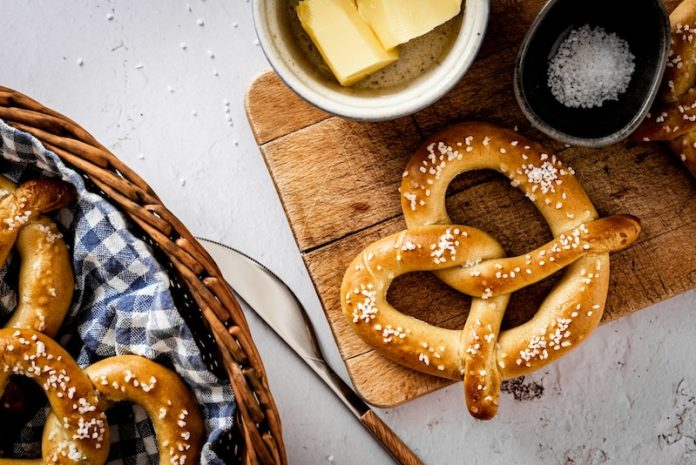
High blood pressure, or hypertension, is often called the “silent killer” because it can lead to serious health problems like heart disease and stroke. Many people know about the foods that help lower blood pressure, but it’s just as important to be aware of the foods that can cause a quick rise.
Some foods can temporarily or even permanently increase blood pressure if eaten regularly, especially for people who are already at risk. Let’s take a closer look at how this happens and the foods to watch out for.
One of the biggest culprits behind a rapid rise in blood pressure is salt. Salt contains sodium, which makes the body retain water. When there’s too much sodium in your bloodstream, it increases the volume of blood, putting extra pressure on your blood vessels.
Processed foods like chips, salted nuts, and canned soups are packed with sodium and can quickly cause a spike in blood pressure.
According to research in The American Journal of Clinical Nutrition, even a single high-sodium meal can raise blood pressure in sensitive individuals within just a few hours.
Fast food is another common trigger. Burgers, fries, and other fast-food items are not only high in sodium but also often loaded with unhealthy fats.
These trans and saturated fats can stiffen your arteries over time, making it harder for blood to flow freely and causing an increase in blood pressure.
A study published in Hypertension Research found that people who frequently ate fast food were significantly more likely to have high blood pressure compared to those who ate it rarely.
Sugary foods and drinks can also raise blood pressure, though in a different way. While sugar doesn’t directly cause a spike like salt, it can lead to weight gain and insulin resistance, both of which increase the risk of hypertension.
In fact, research in The Journal of the American Society of Hypertension showed that consuming high amounts of sugar, especially in sodas and sweetened beverages, can contribute to higher blood pressure over time.
Drinking a sugary soda may not cause an immediate spike, but regular consumption can have lasting effects.
Caffeine is another substance to consider. Found in coffee, tea, energy drinks, and some sodas, caffeine can temporarily raise blood pressure by stimulating the heart and narrowing blood vessels.
For most people, the effect is mild and short-lived, but for those who are sensitive to caffeine or already have high blood pressure, even a single cup of coffee can cause a noticeable spike.
A study in The American Journal of Cardiology found that blood pressure levels rose within 30 minutes of consuming caffeine and stayed elevated for up to three hours.
Alcohol is another factor. Drinking even moderate amounts of alcohol can raise blood pressure temporarily, especially in people who don’t drink often. Heavy drinking, on the other hand, can lead to chronic hypertension.
Research in The Journal of Hypertension has shown that alcohol causes the blood vessels to tighten, leading to higher pressure. For those with existing high blood pressure, alcohol should be consumed with caution or avoided altogether.
Certain cured or smoked meats like bacon, sausages, and deli meats are also problematic. These foods are not only high in sodium but also contain nitrates and preservatives that can damage blood vessels over time, increasing blood pressure.
A study in Circulation linked regular consumption of processed meats to a higher risk of hypertension and heart disease.
Finally, foods high in refined carbohydrates, like white bread and pastries, can also contribute. These foods cause a quick spike in blood sugar, which can temporarily raise blood pressure.
Over time, eating too many refined carbs can lead to insulin resistance, a condition strongly associated with hypertension.
In summary, foods like salty snacks, fast food, sugary drinks, caffeine, alcohol, processed meats, and refined carbs can all raise blood pressure, either temporarily or over time.
While enjoying these foods occasionally is fine for most people, those with high blood pressure or at risk of developing it should limit their intake and opt for healthier choices whenever possible.
Knowing what to avoid can be just as important as knowing what to include in a heart-healthy diet.
If you care about blood pressure, please read studies about unhealthy habits that could increase high blood pressure risk, and eating eggs in a healthy diet may reduce risks of diabetes, high blood pressure.
For more information about blood pressure, please see recent studies that early time-restricted eating could help improve blood pressure, and results showing 12 foods that lower blood pressure.
Copyright © 2024 Knowridge Science Report. All rights reserved.



